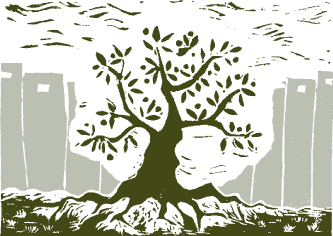History.
Contrary to a popular misconception, the conflict in Palestine/Israel is neither hundreds of years old nor is it primarily religious. At the heart of it is a struggle for the control of land.
Zionism, which emerged in nineteenth century Europe, is an ideology of Jewish nationalism. A key factor in the birth of the Zionist movement was anti-semetic persecution in Europe and Russia.
But in choosing Palestine as the place for a Jewish state, the Zionists were on a collision course with Palestine’s Arab population (Muslim and Christian).
In 1900, the population of Palestine was about 96% Arab, and 4% Jewish. In 1917, British Foreign Secretary Lord Balfour revealed that the British government supported “the establishment in Palestine of a national home for the Jewish people”. The Palestinian Arabs – at that stage still over 90% of the population – were simply referred to as the “non-Jewish communities”.
Jewish immigration into Palestine increased dramatically through the 1930s and ‘40s, as a result of intensifying persecution in Europe that culminated in the Nazi Holocaust.
When the UN voted for Palestine to be partitioned in 1947, over half of the land was allotted to the proposed new Jewish state, even though Palestinians were over two thirds of the population and only 6% of Palestine was under Jewish ownership. The Jewish leaders accepted the proposed plan but the Palestinians rejected it. Britain, who had been controlling the territory, withdrew and war broke out between the Jewish forces and Arabs from within Palestine and the surrounding countries.
In 1948, following military victory, the State of Israel was established. Up to 90% of the Palestinians who would have been inside the new Jewish state’s borders were expelled. As many as 500 Palestinian towns and villages were destroyed. This is why Palestinians refer to the creation of Israel as the Nakba (‘catastrophe’ in Arabic).
In 1967, during a war with the neighbouring Arab states, Israel conquered the West Bank and Gaza Strip, beginning its military rule of what became known as the Occupied Palestinian Territories (OPT).
Soon after the occupation began, Israel began to expropriate land and create Jewish settlements. These settlements have been established and expanded, by successive Israeli governments, in breach of international law.
In 1987, Palestinians under Israeli military occupation rose up in what became known as the First Intifada (literally, ‘shaking off’ in Arabic). Stone-throwing Palestinians confronted Israeli soldiers, while many communities adopted classic civil disobedience tactics.
In 1993, the Oslo Peace Accords were signed, establishing the Palestinian Authority in small pockets of the OPT. The claim was that this would be an interim stage towards full Palestinian statehood, but by 2000 the Israeli settler population in the West Bank had grown by 50% (three times the population increase in Israel itself).
At the end of September 2000, another Palestinian uprising began (the Second Intifada). It was triggered by the visit of Ariel Sharon and hundreds of security forces to the site of the al-Aqsa mosque in Jerusalem, one of the holiest places for Muslims.
In the first 30 days of the Second Intifada, over 120 Palestinians were killed by Israel across the West Bank and Gaza, without one Palestinian attack inside Israel. The violence quickly escalated.
Israeli forces inside the OPT invaded Palestinian towns and refugee camps, deploying tanks, helicopters and F-16s. Palestinian suicide bombers targeted buses and restaurants in Israeli cities. By the end of 2006, 4400 Palestinians had been killed, and around 1000 Israelis.
In 2002, Israel began work on the Separation Wall in the OPT, officially calling it a security measure. However, the Wall’s route, looping around the West Bank and East Jerusalem to include significant Jewish settlements, suggested a land grab. The judges of the International Court of Justice agreed in July 2004 that the Wall is contrary to international law.
